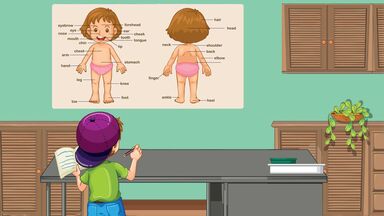Placenta Definition
plə-sĕntə
placentae, placentas
noun
A vascular organ, developed within the uterus of most mammals during gestation from the chorion of the embryo and a part of the maternal uterine wall, that is connected to the embryo by the umbilical cord and that is discharged shortly after birth: it serves as the structure through which nourishment for the fetus is received from, and wastes of the fetus are eliminated into, the circulatory system of the mother.
Webster's New World
A similar organ in marsupial mammals, consisting of a yolk sac attached to the uterine wall.
American Heritage Medicine
Any similar structure in other animals.
Webster's New World
That part of the lining of the ovary which bears the ovules.
Webster's New World
Any mass of tissue that bears sporangia or spores.
Webster's New World
Other Word Forms of Placenta
Noun
Singular:
placentaPlural:
placentae, placentasOrigin of Placenta
-
New Latin from Latin flat cake alteration of Greek plakoenta from accusative of plakoeis flat from plax plak- flat land, surface plāk-1 in Indo-European roots
From American Heritage Dictionary of the English Language, 5th Edition
-
From Medieval Latin placenta uterina (“uterine cake"), from Latin placenta (“flat cake"), because of the flat round shape of the afterbirth.
From Wiktionary
Related Articles
Find Similar Words
Find similar words to placenta using the buttons below.
